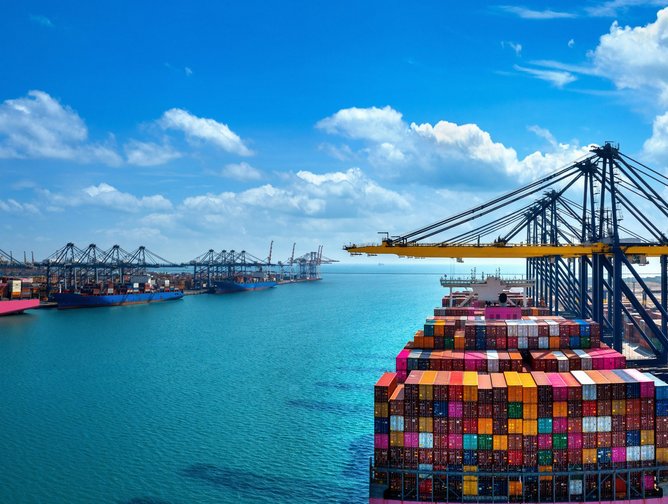Board International’s Head of Supply Chain David Food, Q&A

In a world where erratic disruptions and variable risks are impairing the supply chain, careful supply chain management requires specialist skill and understanding. As Head of Supply Chain at Board International, David Food applies his experience in marketing strategy and execution to help companies develop expertise in supply chain practices.
With over 30 years’ experience in supply chain consulting and lecturing, Food is a subject-matter expert on all things supply chain. At Board International, the Intelligent Planning Platform for making corporate planning decisions, he advises on strategy, leveraging capabilities and envisioning future supply chain opportunities that enable customers to make planning decisions of the future.
Here we talk about the benefits of switching from offshoring to right-shoring, which consists of locating a business’s manufacturing operations in the most cost- and time-effective place - usually, closer to home.
Q: What is right-shoring?
“Companies that are most effective at right-shoring are companies, for example, that understand the trade-offs for offshoring compared to the cost of change. Given the current complications of risk in the supply chain, organisations must assemble teams of experienced partners to ensure a supply chain that flourishes in the face of a global logistics hiatus. So the trade-off has become more complex; the value of inventory in transit, reliability of lead time, environmental impact, and other ESG elements can be considered as well as flexibility and responsiveness at least cost.”

Q: How can right-shoring help companies deal with disruptions within the supply chain?
“Right-shoring and right-routing can avoid the risk of delay by removing the exposure to particular routes or capacity-constrained ports while also ensuring less inventory at risk in transit; there are often additional costs as proximity to the market typically implies significant production costs.”
Q: Does this apply now, with the current uncertainties the supply chain is facing?
“Making the right sourcing decisions is about leveraging your commercial objectives, so if it's about reducing costs, you are looking for the cheapest source. If it's about flexibility and responsiveness where you need it, the make/buy/source decision has become more complex with a wider range of scenarios to consider. Intelligent supply planning is about increased visibility with appropriate decoupling points to allow for flex and response thinking.”
Q: Are there any setbacks to right-shoring?
“It can get rather complex; often, sourcing experts do not have all the data, and new mindsets and risks are not considered in the initial models, so they sometimes have to be reworked. The competitive landscape changes, and fresh global players enter your local market; this can often result in a refresh on your right-shoring strategy.
“Re-shoring enables:
- More frequent visits to the manufacturing site
- Better control of the intellectual property
- The opportunity to operate in a more suitable time zone
- More rapid transit from manufacturer to customer
- Better speed to market
- Enhanced quality control
- Increased supply chain efficiencies.”
Q: What are sustainable and ethical right-shoring strategies?
“Sustainable and ethical right-shoring strategies include having visibility into your tiered supply chain and understanding exposure to environmental, geopolitical or societal risk is often hidden, especially when you get beyond your first tier suppliers, the further from your home market. Reports have shown that when companies have little insight into their supplier network, with data gaps and inconsistencies riddling their operations - leading to potential issues with backlogs, sustainability, carbon footprints, ethical and fair labour, etc.
"However, by incorporating intelligent business planning and embodying a hub approach, companies can maintain sustainable supply and right-shoring strategies. Big data and predictive analytics are championing traceability and transparency in the supply chain. When real-time data on suppliers’ capacity, sustainability performance, procurement practices, etc, are readily available across entities, companies are able to remain sustainable and ethical.”
Q: What other sourcing or logistics solutions could help overcome current problems within the supply chain?
“To enable more flexible responses, greater visibility into your supply chain allows fine-tuning to be made in the planning to ensure supply reliability and mitigate customer service risks. This can have a range of intelligent planning solutions. Also, as safety stock protects against variability, one further nuance on the supply continuity challenge that is improved through right shoring is to plan for those variabilities with additional flexibility, such as inventory, overtime, or cash.”
Q: What services do you offer clients at Board International?
“Board offers its customers intelligent planning solutions that enable end-to-end visibility of supply chain resources and assets. This allows organisations to balance demand and inventory and assess resilience, responsiveness and profitability of plans before, during and after every operational decision.”






